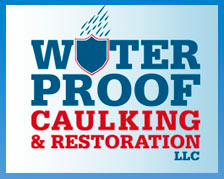Commercial buildings can suffer a lot of wear and tear, and business needs might not always align with the seasons. If your business could use some masonry work right now while the temperatures are dropping, you might be concerned that you need to wait until spring when everything warms up. While it’s true that the cold weather has an important impact on commercial masonry work, professionals with experience in this area can still help you to get the job done. Here’s what you need to know about when it’s too cold to do commercial masonry work and what you can do to get your projects done no matter the weather.
Is There Such a Thing as “Too Cold”?
The weather has a critical impact not only on the comfort of the masons who are doing work on your building but also how the materials set and cure on their own. Around 40 degrees Fahrenheit is the cutoff for when masonry requires extra attention and special care during projects-which means that even if it’s not quite freezing yet, you could still be in for some special procedures in order to complete your project.
The good news is that masons can take precautionary steps to ensure that your commercial work goes off without a hitch. In exchange, you’ll need to be prepared for the project to take longer, take up more space and utilize less aesthetically-pleasing tools for a short time. If this doesn’t sound like a deal breaker, you can complete your commercial masonry work even when the snow starts falling.
How to Prevent Cold Weather Mortar Issues
The biggest problem with masonry work in cold weather is how the mortar cures and sets. When cold air accelerates and alters the curing process, mortar can crack or flake even when it’s brand new. Since mortar is meant to help bricks to evenly displace their weight, cracked mortar could lead to significant damage and even structural failure.
Mortar must be moist in order to be applied, and it’s critical that this moisture remain damp rather than frozen. The freezing process is what pushes the molecules apart and causes cracking. Additionally, if the mortar’s moist surfaces are allowed to accumulate ice crystals, they could fail to bond properly with the other materials, like brick.
To prevent this negative behavior in cold environments, experienced masons will heat the mortar slightly so that it doesn’t freeze during application, and they’ll use accelerants to make it cure faster, before ice crystals can form. They’ll also work with very small amounts of mortar at once, since any mortar that is not actively in place and curing can start to freeze. The mason may apply heat to keep mortar from cracking while it hardens.
Protecting New Work in Cold Environments
Of course, mortar is not the only problem when it’s cold during a project. Other materials like sand can also freeze and must be appropriately thawed before application. All masonry units like clay bricks-need to be kept warm as well, which often means storing them on heated boards so that they stay above 20 degrees Fahrenheit. Otherwise, they may fail to bond.
Once the project is complete, it still needs time to set; masons cannot stand around a commercial building gently blowing warm air onto a wall for days until it is fully cured. However, they can create a conditioned space where the new work can finish at the appropriate temperature.
For this, be prepared to have some scaffolding or plastic covers over the work area for a few days. Insulation blankets and even windbreakers for windy areas should be installed for up to two days, especially when temperatures drop to 20 degrees or less. The purpose of these insulating materials is to keep the project area above 40 degrees, where the materials used can cure as they normally would.
Slightly more time and expense is typical to manage masonry work that requires these extra steps, and you’ll need to cope with an unsightly work site for a day or two. But if your building is in need of masonry repair or new construction, don’t feel like you need to wait for warmer weather.
Trust the Pros to Tackle Commercial Masonry Work When the Temperature Drops
Masonry repairs might be needed at any time of the year, and you don’t need to wait for warmer weather to get things done if you work with professionals who have experience in cold weather masonry. The experts at Waterproof Caulking & Restoration can help you accomplish your goals no matter the time of year. Reach out to learn more or to schedule an appointment to get started.
